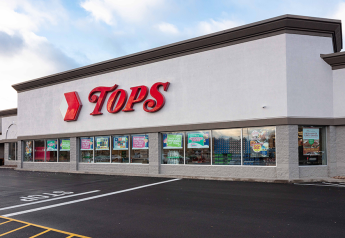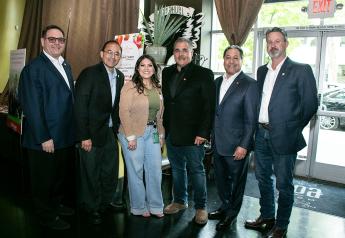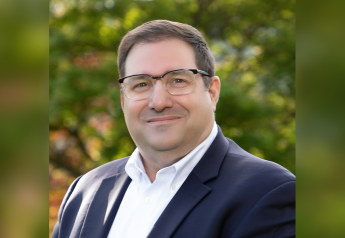Goals that go beyond 'greenwishing'
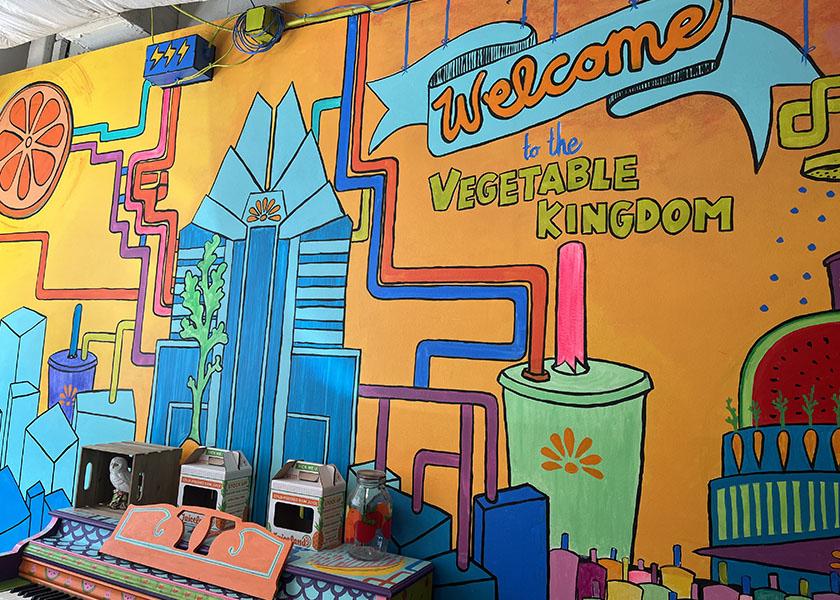
Along with the annual migration of golden-cheeked warblers, every year in early March tens of thousands of musicians, entrepreneurs, film crews and tech startups descend on sunny Austin, Texas, for the annual South by Southwest Conference.
Also known as SXSW, the festival hosts a dizzying array of concerts, premiers and art activations that take place in every corner of Austin. Also layered onto the festival is an interactive conference that lasts over a week and is punctuated by serious discussions about climate, tech, culture, art, startups and, yes, even food.
From March 10-12, food was a major focus at the 2023 SXSW Conference. Along with familiar celebrities, activists and luminaries, fresh produce innovators, ag advocates and foodtech leaders gathered to share their perspective on the state of the industry, trends, challenges and who’s doing what.
One such discussion was a provocative two-part panel called “Businesses Doing More Than ‘Greenwishing.’” The conversation included leaders from Driscoll’s, The Kroger Co., Google, Bonterra and others who, over the course of two hours, shared many of the strategies and approaches they have used to tackle lofty sustainability and environmental, social and governance (ESG) goals.
These leaders detailed how they were putting action behind their words, setting milestones, making decisions and making good on well-meaning promises, plans and marketing claims within their organizations.
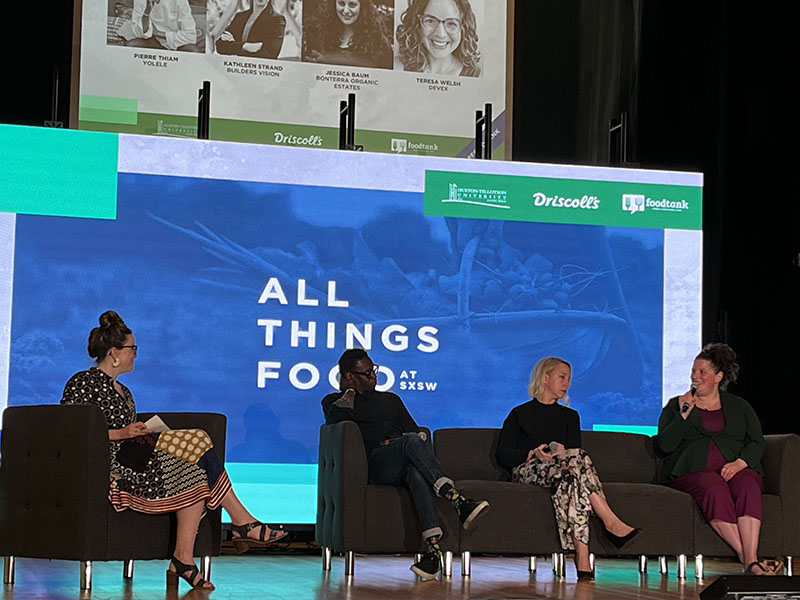
The panel was hosted by a nonprofit think tank called Foodtank during a SXSW-sponsored summit on Sunday, March 12, at Huston-Tillotson University in East Austin. The discussion wasted no time in diving headfirst into challenges on the minds of many entrepreneurs and food businesses in the audience.
Greenwashing versus greenwishing
“What is greenwishing?” asked Natalie Byrne, founder of impact strategy firm, Blankspace. “We all know what greenwashing is; it’s when you see something, like a marketing campaign, that isn't tied to real impacts.”
Greenwashing, according to Byrne, is a strategy meant to mislead — tugging at heartstrings without real action behind it. On the other hand, greenwishing is when companies set audacious goals in the distant future with no clear plan to achieve them or a lack of buy-in to accomplish these goals. Both strategies mislead. The difference is that greenwishing seeks to achieve things that are unlikely, for many reasons, to become reality.
“How I see it is a company puts a stake in the ground and says, ‘I want to have this huge goal completed by 2050,’” Byrne said. “In the time it takes to move the company — like a cruise ship — towards that goal, they face challenges.”
Often when facing these challenges, continued Byrne, some companies receive criticism that, in many instances, derails sustainability goals.
“There’s a difference between constructive criticism and just throwing tomatoes in the dark,” she added.
“Greenwishing is really the opposite of good goal-setting for me,” said Emily Ma, head of Food for Good at Google. “I know many people out there want us to set ambitious goals, but there's a reason why we might be setting slightly less ambitious goals. We truly don't want to be just wishing for something to happen. We want to be actually making it happen.”
How to avoid ‘pie in the sky’ goals
“Google generally tends to not talk about anything until we have a pretty good plan to get there, or we've already done. No good deed goes unpunished,” Ma said. “We tend to be very quiet about what we do until we're almost done.”
At Kroger, Senior Director of Sustainability and Social Impact Denise Osterhues said her main challenge is narrowing in on where her team can make a measurable impact on a broad and diverse range of topics.
“We are asked to do a lot of things … and some of the advocacy groups are very single-issue,” Osterhues said. “Our portfolio of topics is huge and covers the entire spectrum of things that we manage for people, our planet and to help create a more equitable, fair, sustainable food system. That list of topics is enormous.”
Osterhues said sticking to a rigorous decision-making process has helped her team set goals that they have become reality.
“The main way we show up, in terms of what we decide to do and what our timeline, is our three pillars: people, planet and systems. We have a very broad portfolio of specific topics in within that platform,” she said. “We make decisions every day, based on balancing the tradeoffs, priorities and feedback and engagement from our stakeholders.”
Osterhues dubbed her process “operationalizing ESG decision-making.” Using this model, her team shares their ESG goals with Kroger’s leadership and poses a question at the end. “How can you help us get these goals done? What is achievable and reasonable?” she said.
This feedback and stakeholder engagement helps her team secure the internal buy-in and the support needed to drive the goal across the finish line, she said.
One example on this process in action, Osterhues added, is Kroger’s recent resistance to cave to mounting pressure to set a net-zero target.
“I don't know what's going to happen by 2040 and 2050,” she said. “And I don't want to just wish for something to happen without having a pretty concrete road map and a really good start.”
Alejandra Sanchez, Driscoll’s social responsibility and sustainability marketing manager, agreed that thoughtful goal-setting is the key to maintaining not only consumer trust, but trust internally with growers as well.
“When you're so close to your growers, their success, their mistakes are ours; it’s really an interdependent ecosystem,” Sanchez said.
“If we took steps [and set big goals] without really knowing what the process is, you don't just lose consumer trust, but you lose trust internally,” she said. “You lose trust with your growers. You lose trust and leadership. It can be really damaging in the long run.”
Sanchez added that sees the most authentic and effective sustainability communication as education.
“At the end of the day, there's a lot of things we're doing that's creating behavior change,” she said. “On one side of the spectrum, you have science communication, and on the other side [is] greenwashing. Somewhere in the middle is the sweet spot: strategic storytelling … You need to bring consumers along.”


